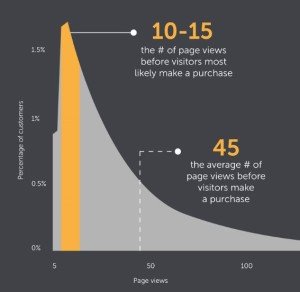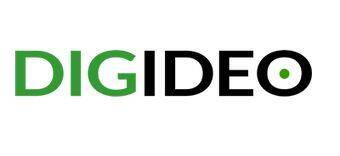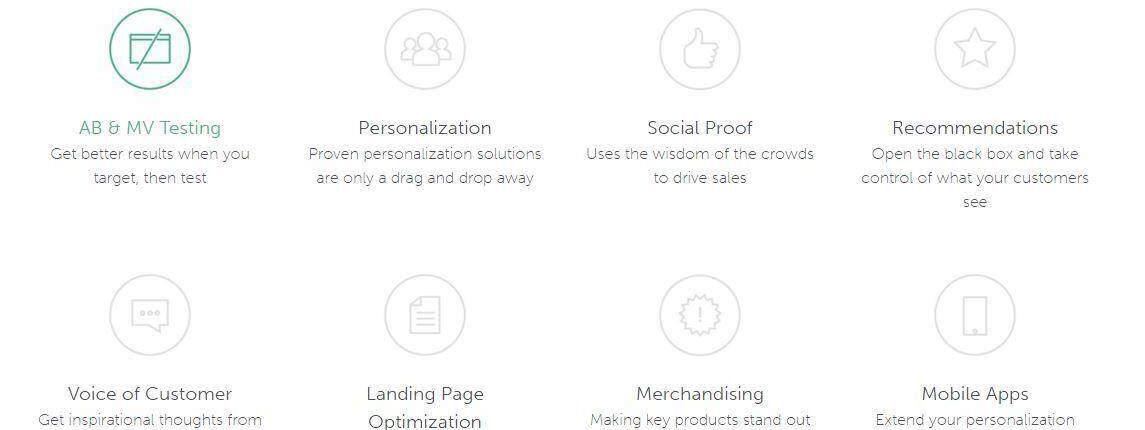Improve your marketing efforts by understanding consumer behavior. Our comprehensive guide covers the key factors that influence consumer decision-making.
Estimated reading time: 9 minutes
Personalization in online shopping has a rapidly growing importance in digital marketing. The major efforts of digital marketers are now put on customer engagement on their websites or online shops.
Keep your clients! Don’t lose them!
In 2014, we started cooperating with Quarticon, the customized product recommendation tool for online shopping. Since then, I have noticed many new tools and solutions. More and more online shops think and introduce the personalization of their offer, promotions, and coupons. They go into Amazon’s direction that personalizes everything – even categories, product recommendations, category recommendations, and emails. I started to analyze the available solutions for my clients, which I found currently on the market (updated on Feb. 25, 2019). All of them present great numbers of growing conversion rates. I don’t want to go deeper into it. Let’s come back to the purchasing process:
- how it looks like, and
- why content personalization is one of the tools available for online shops and websites.
- Next, I will briefly present the most popular personalization tools.
The purchasing process
The online purchasing path should be very similar for all shops. There are a couple of ways you can direct your potential customers to your website: via online search, paid search, price comparison services, referrals, or directly if they already know your brand, products, and website. Next, you build your website with all SEO, usability, IT, and marketing best practices. Your potential customer has only three clicks to buy. And you don’t understand why they don’t buy. The answer is more complicated than you think and used to be in the past. It can be:
- your competition that has better prices or product offer
- your online website issues that somebody cannot buy because of errors or wrong links
- And finally, the changes in customer habits:
- They buy after visiting your website 4-5 times and watching your product pages many times.

-
- Your most loyal customers are coming from SEO:) And most valuable from emails and newsletters:)

Now you start to see why the personalization tools can collect more customers:
- If you know:
- your customer habits,
- what they are looking for,
- what they are,
- where they come from – SEO, Adwords, etc.
- if they visited your website previously,
- if they bought previously and what
- you can start to work on changing your offer to fulfill their needs better and get the next purchase.
The most comprehensive view of possible elements of personalization you can start:
- A/B testing of your pages – small changes and check it in Google Analytics if it worked
- Landing page optimization – a deeper analysis of your page that includes SEO, your page speed optimization, usability, and A/B testing
- Product recommendation – you can start from what you have built in your online shop engine.
- Social proof – simply script of sharing to social media or your social media activity shared in your online shop:) People like it.
- Find your best sellers and newest products and start presenting them. Customers love it.
- Mobile presence – it is an exciting topic. The simplest solution is to build a responsive theme, but having a mobile application can help you add many other features that could be difficult on the website: product configurators can be much more advanced via a mobile application. Some shops exist only via a web application.

The personalization in online shopping and websites:
- Adobe Marketing Cloud – proposes individual visitor targeting via personalized content based on a person’s past, current, and changing interests. It is a self-learning target engine that automatically makes associations with various events and differences between predicted and observed responses.
- Maxymiser automatically builds a unique customer profile for every online visitor based on in-session data, behavioral data, industry and client-specific data, historical data, CRM data, DMP, and other 3rd party data. Their revolutionary automated personalization algorithms mine visitor and behavioral data and allow you to target the optimal journeys precisely and offer to every prospect and customer with a simple press on a button. The unified nature of Maxymiser’s platform enables clients to seamlessly leverage the results and insight from testing to deliver the most relevant one-to-one experiences possible to drive tangible increases in business performance, not just the theoretical uplift in some arbitrary conversion rate common with so many ‘personalization’ efforts.
- Baynote provides personalized customer experience solutions for multi-channel retailers. With Baynote, you understand what buyers are looking for and engage them in the most relevant way – at the moment. Whether a customer interacts with your brand on an eCommerce website, a smartphone, a tablet, or through a digitally enabled in-store sales associate, Baynote delivers personalized shopping experiences across all channels.
- Salesforce is the leading provider of personalized recommendations for multi-channel retailers.
- Barilliance helps eCommerce sites of any size to increase sales and conversion rates by providing visitors with a personalized shopping experience every step of the purchase journey with real-time website personalization, cart abandonment emails, and personalized product recommendations.
- Certona uses 1:1 personalization that combines real-time context with unmatched customer profiling and dynamic merchandising, enabling you to deliver individualized product recommendations, content, and offers that deeply engage customers and enhance experiences to match your business goals. And others very similar:
- Monetate
- Optimizely
- Qubit
- RichRelevance
- SiteSpect
- Visual Website Optimizer (VWO) is only for A/B testing but is very powerful.
- Madrill and Mailchimp also have simple personalization tools for small shops.
You can see from these tools that personalization in online shopping is more than just surfacing product recommendations; it is your entire site experience. These tools will help you foster a positive customer relationship and improve your conversion rates. All these tools help to boost your business. Previously, they were so expensive that only huge shops were able to afford them. Now, due to huge competition and better technology, the cost of implementation and operations is lower and lower. I missed one factor in all offers: the multichannel personalization. Recently I receive more and more questions about it. Maybe it is the next step for all of them. Let’s see. I noticed one startup that is trying to take care of it. Once I get more information, I will let you know.


Share this entry